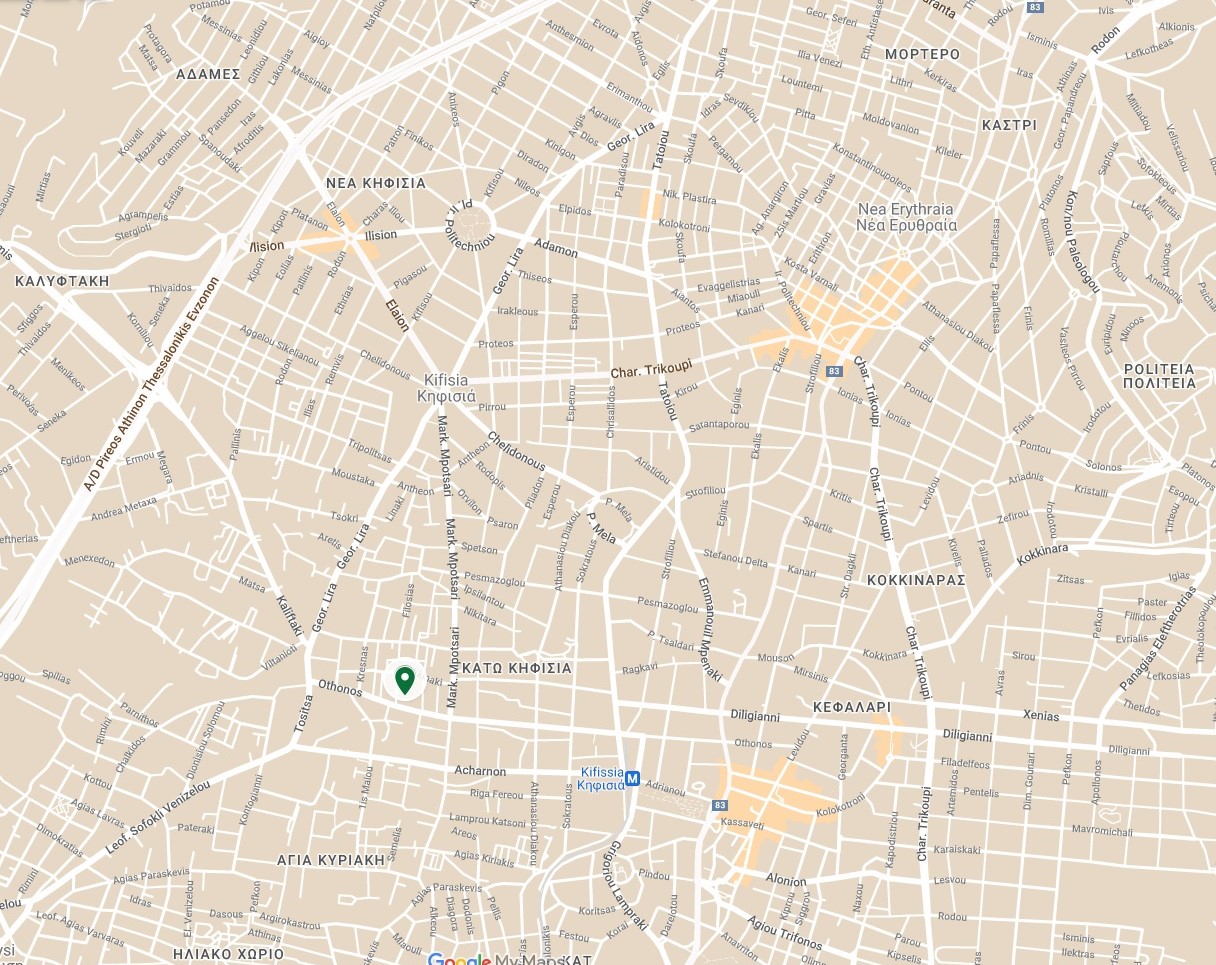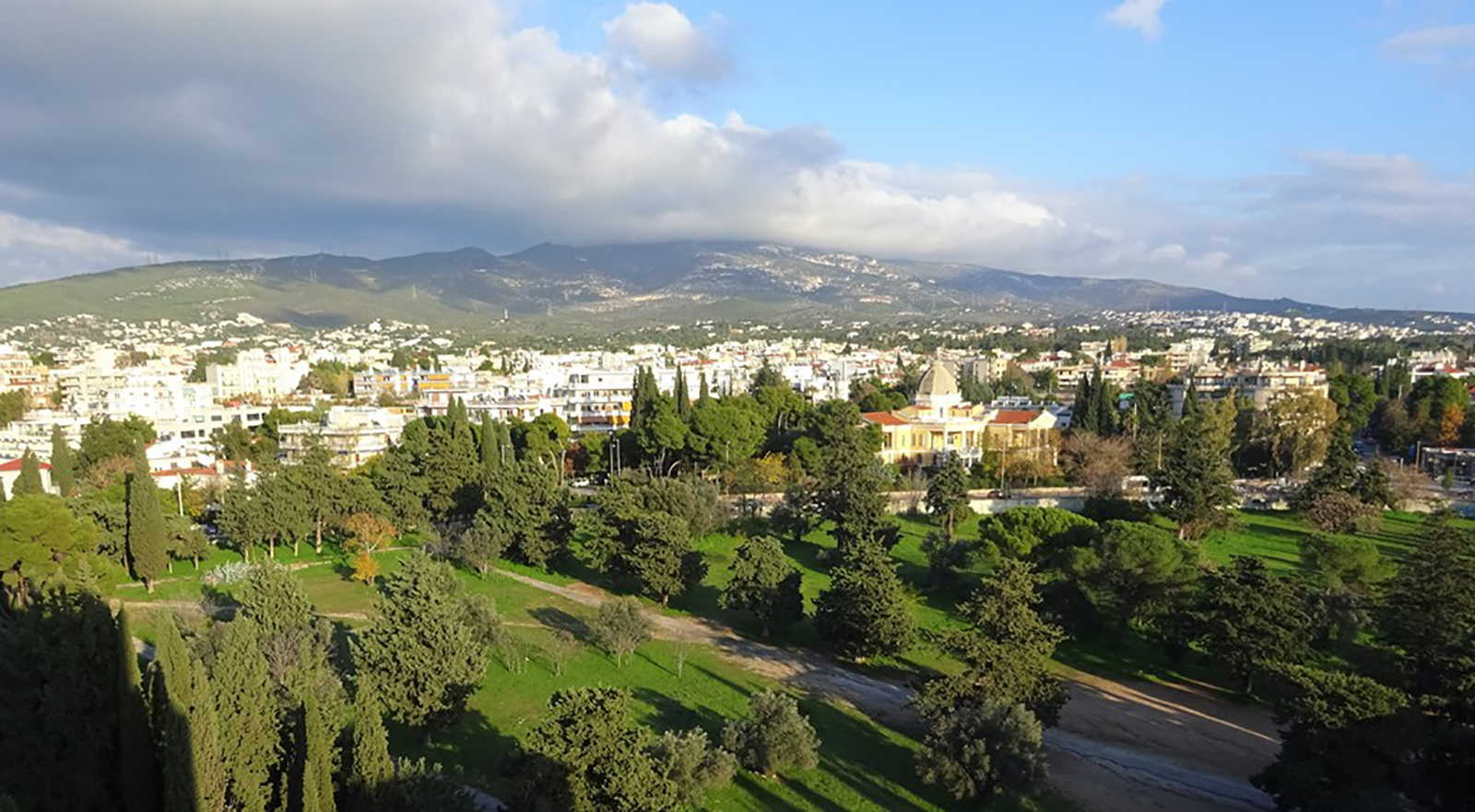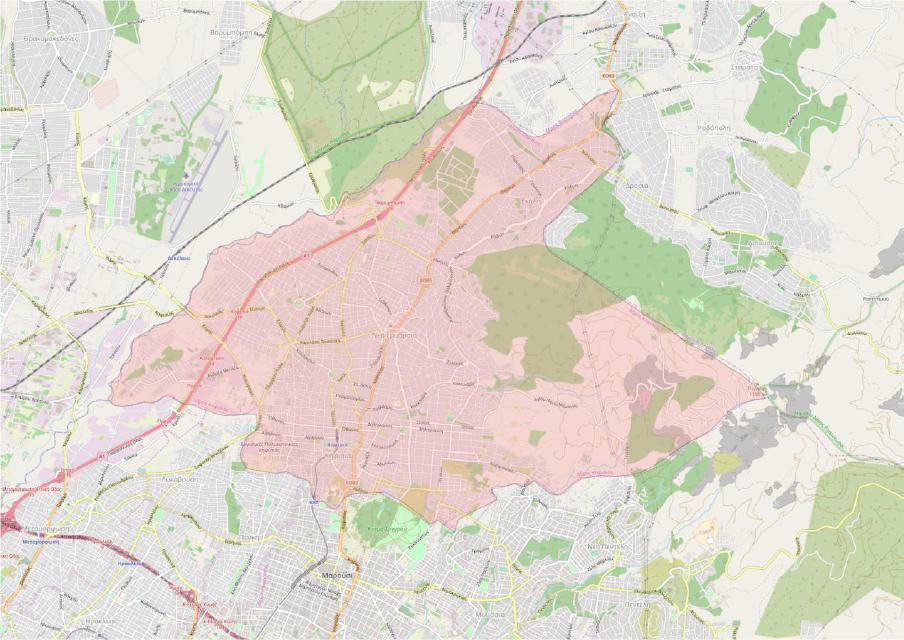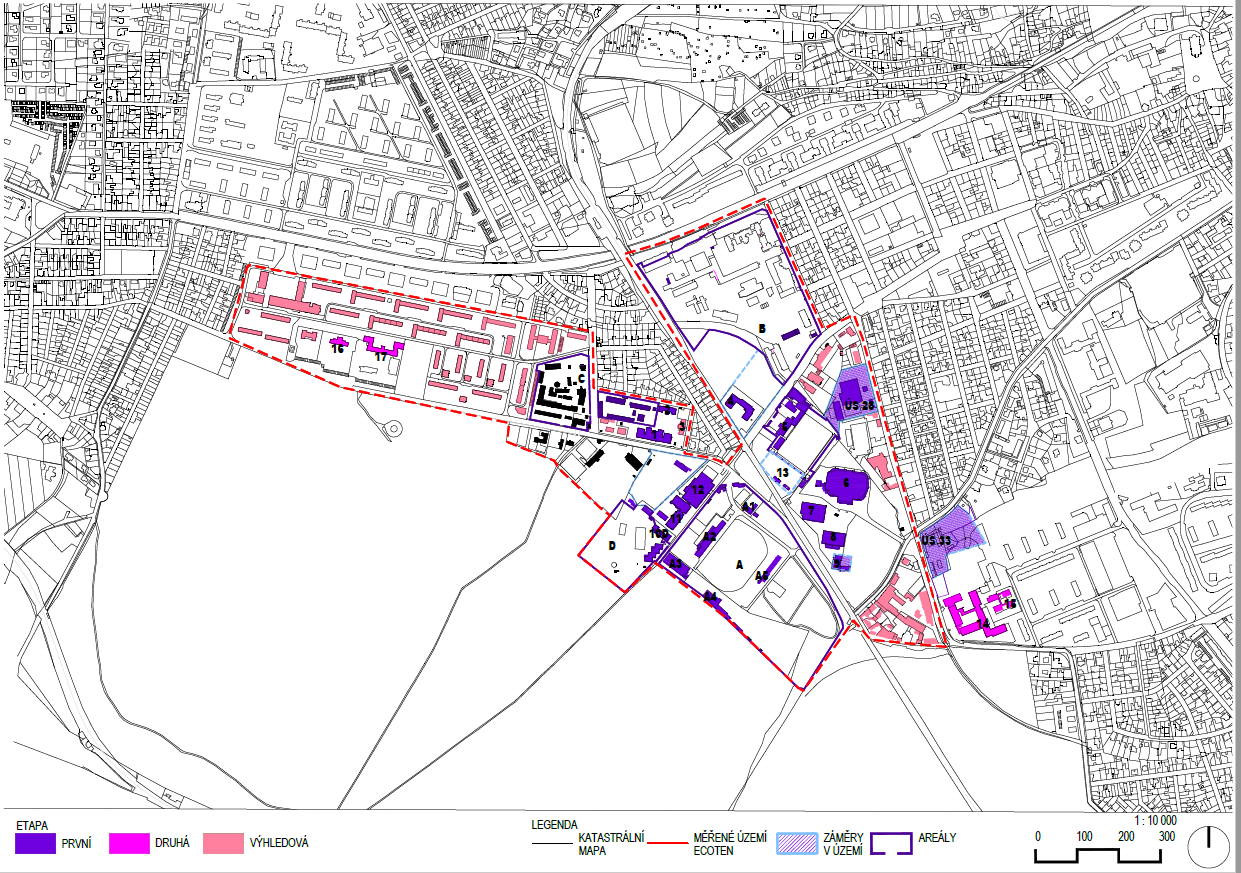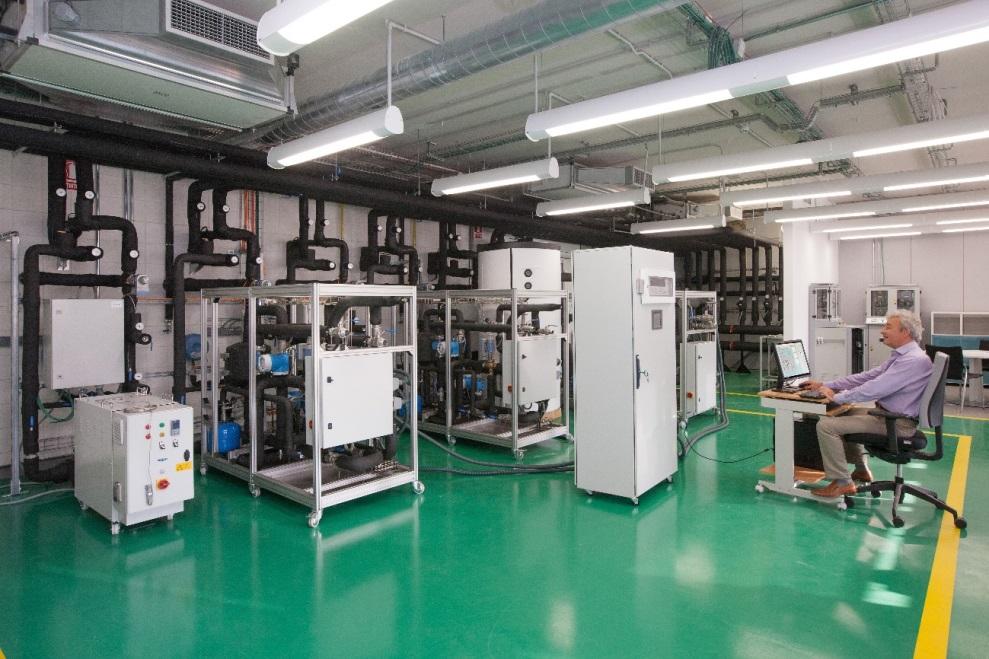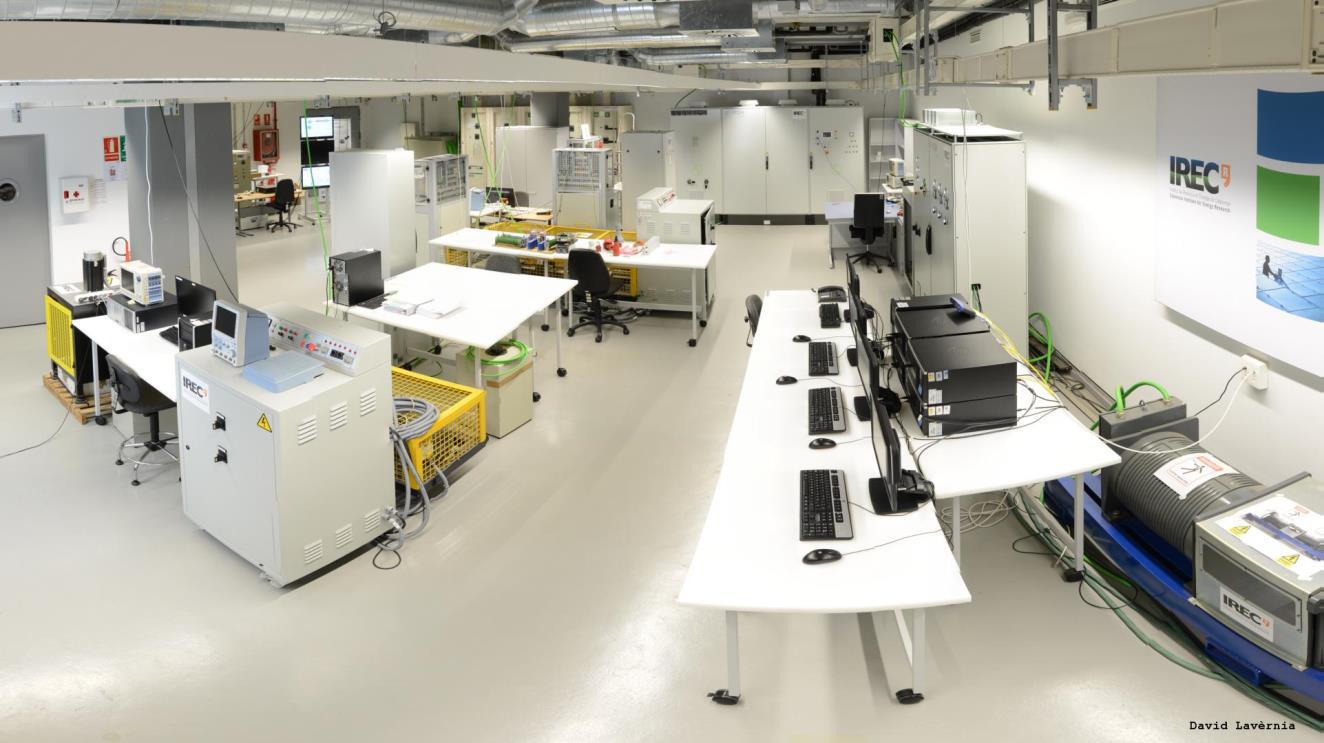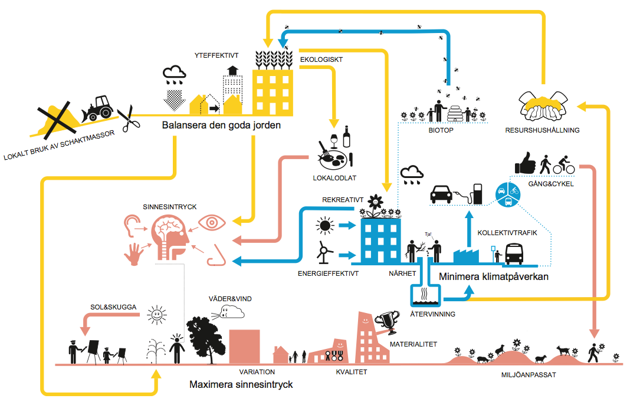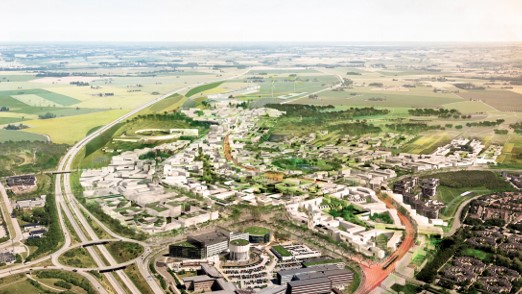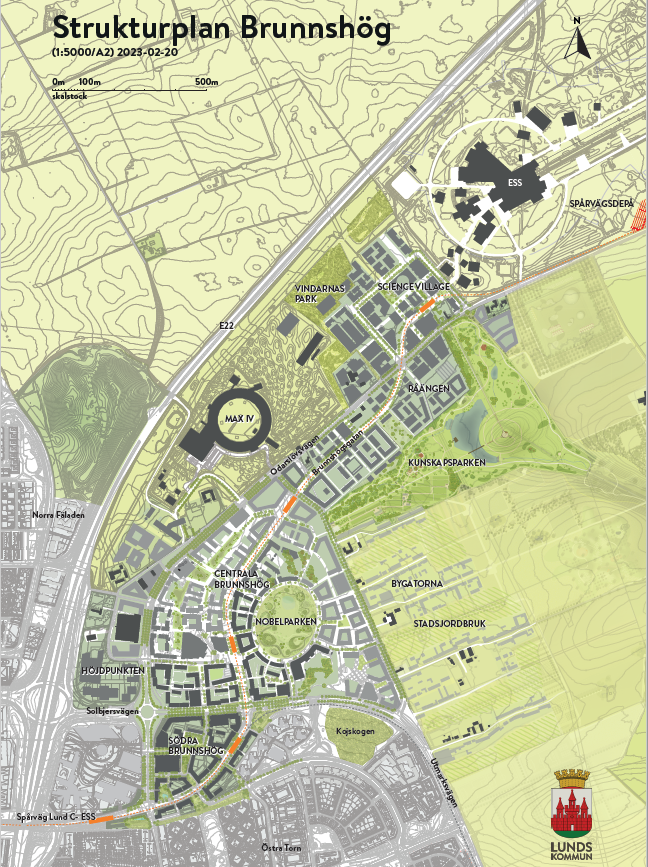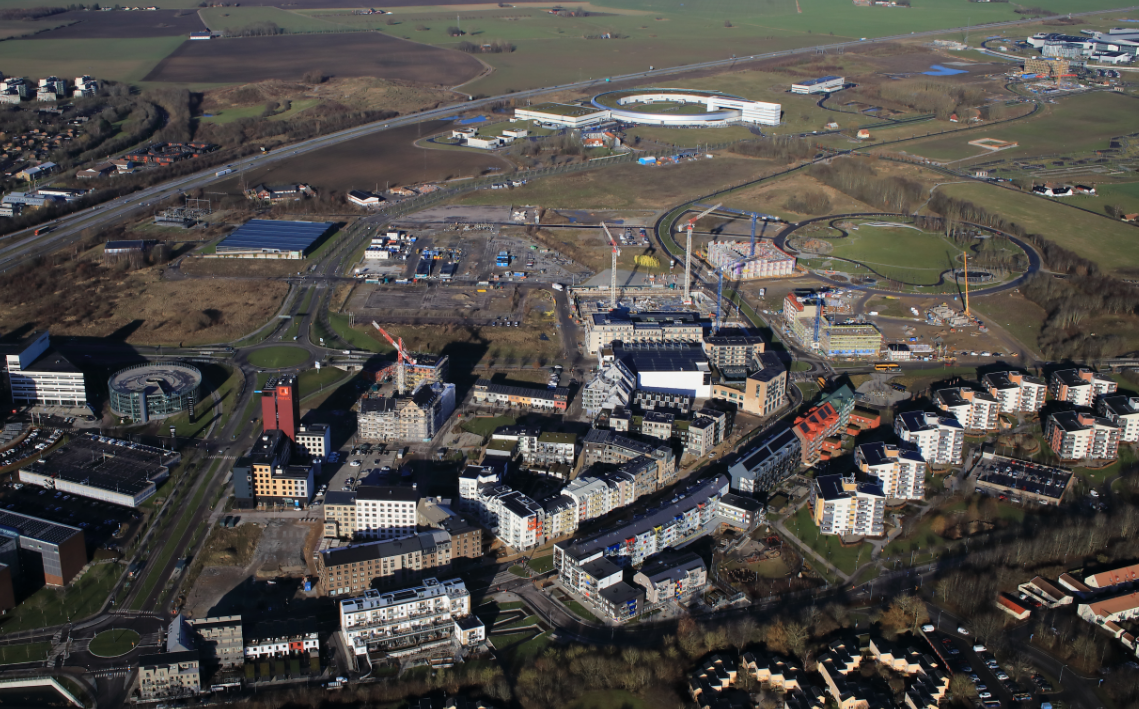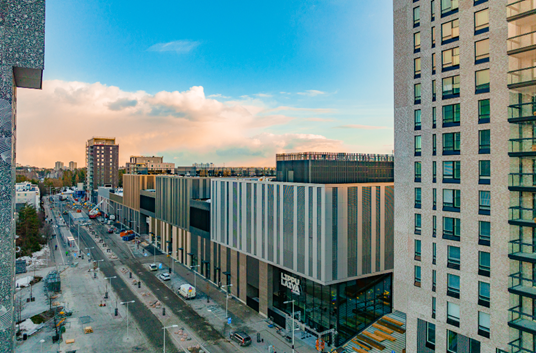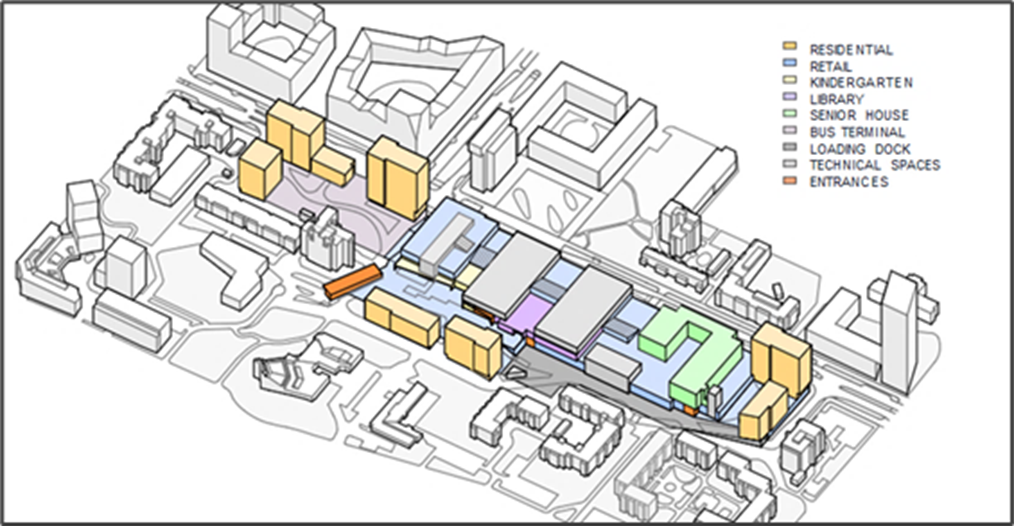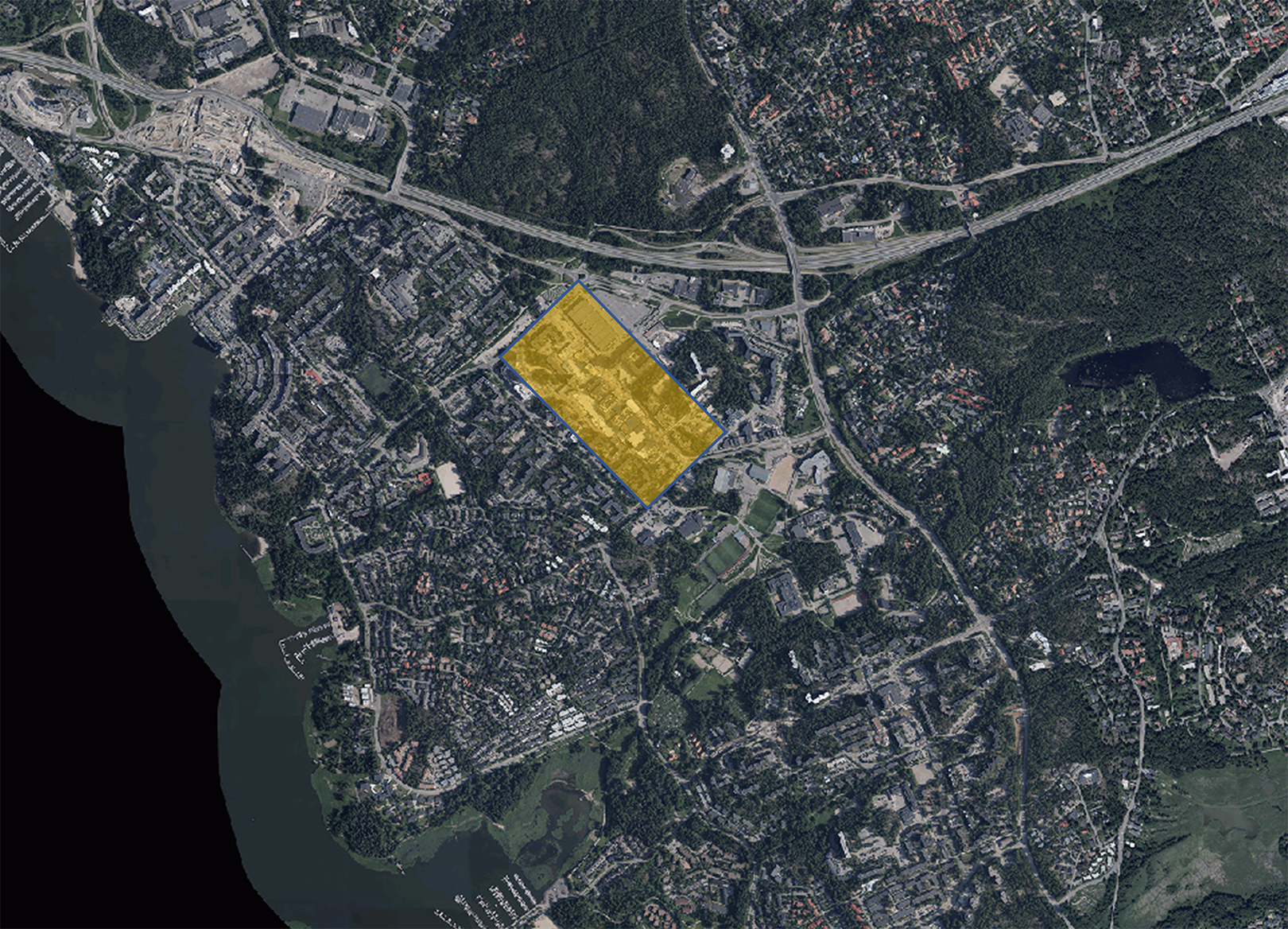| Name | Project | Type | Compare |
|---|---|---|---|
| Romania, Alba Iulia PED | ASCEND – Accelerate poSitive Clean ENergy Districts | PED Case Study | Compare |
| Romania, Alba Iulia PED | InterPED – INTERoperable cloud-based solution for cross-vector planning and management of Positive Energy Districts | PED Case Study | Compare |
| Munich, Harthof district | PED Case Study | Compare | |
| Lublin | MAKING-CITY – Energy efficient pathway for the city transformation: enabling a positive future | PED Case Study | Compare |
| Roubaix, MustBe0 – Résidence Philippe le Hardi – 125 Rue d’Oran | CULTURAL-E – Climate and cultural-based solutions for Plus Energy Buildings | PED Relevant Case Study | Compare |
| Bærum, Eiksveien 116 | CULTURAL-E – Climate and cultural-based solutions for Plus Energy Buildings | PED Relevant Case Study | Compare |
| Findhorn, the Park | InterPED – INTERoperable cloud-based solution for cross-vector planning and management of Positive Energy Districts | PED Case Study | Compare |
| Amsterdam, Buiksloterham PED | ATELIER – AmsTErdam BiLbao cItizen drivEn smaRt cities | PED Case Study | Compare |
| Schönbühel-Aggsbach, Schönbühel an der Donau | PED-ACT – Auto characterization of PEDs for digital references towards iterative process optimisation | PED Relevant Case Study | Compare |
| Umeå, Ålidhem district | PED-ACT – Auto characterization of PEDs for digital references towards iterative process optimisation | PED Case Study | Compare |
| Aalborg East | PED Relevant Case Study / PED Lab | Compare | |
| Ankara, Çamlık District | PED-ACT – Auto characterization of PEDs for digital references towards iterative process optimisation | PED Case Study / PED Relevant Case Study | Compare |
| Trenčín | MAKING-CITY – Energy efficient pathway for the city transformation: enabling a positive future | PED Case Study | Compare |
| Luxembourg, Betzdorf | LEGOFIT – Adaptable technological solutions based on early design actions for the construction and renovation of Energy Positive Homes | PED Relevant Case Study | Compare |
| Vantaa, Aviapolis | NEUTRALPATH – Pathway towards Climate-Neutrality through low risky and fully replicable Positive Clean Energy Districts | PED Case Study / PED Relevant Case Study / PED Lab | Compare |
| Vidin, Himik and Bononia | MAKING-CITY – Energy efficient pathway for the city transformation: enabling a positive future | PED Case Study | Compare |
| Oslo, Verksbyen | Syn.ikia – Sustainable Plus Energy Neighbourhoods | PED Case Study | Compare |
| Uden, Loopkantstraat | Syn.ikia – Sustainable Plus Energy Neighbourhoods | PED Relevant Case Study | Compare |
| Zaragoza, Actur | NEUTRALPATH – Pathway towards Climate-Neutrality through low risky and fully replicable Positive Clean Energy Districts | PED Relevant Case Study | Compare |
| Aarhus, Brabrand | BIPED – Building Intelligent Positive Energy Districts | PED Case Study / PED Relevant Case Study / PED Lab | Compare |
| Riga, Ķīpsala, RTU smart student city | ExPEDite – Enabling Positive Energy Districts through Digital Twins | PED Case Study | Compare |
| Izmir, District of Karşıyaka | PED-ACT – Auto characterization of PEDs for digital references towards iterative process optimisation | PED Case Study | Compare |
| Istanbul, Ozyegin University Campus | LEGOFIT – Adaptable technological solutions based on early design actions for the construction and renovation of Energy Positive Homes | PED Relevant Case Study | Compare |
| Espoo, Kera | SPARCS – Sustainable energy Positive & zero cARbon CommunitieS | PED Case Study / PED Relevant Case Study | Compare |
| Borlänge, Rymdgatan’s Residential Portfolio | PED-ACT – Auto characterization of PEDs for digital references towards iterative process optimisation | PED Relevant Case Study | Compare |
| Freiburg, Waldsee | PED urban – Development of methods and tools for accounting, planning and operation of climate-neutral district | PED Case Study | Compare |
| Innsbruck, Campagne-Areal | PED Relevant Case Study | Compare | |
| Graz, Reininghausgründe | PED Case Study | Compare | |
| Stor-Elvdal, Campus Evenstad | ZEN – Research Centre on Zero Emission Neighbourhoods in Smart Cities | PED Relevant Case Study | Compare |
| Oulu, Kaukovainio | MAKING-CITY – Energy efficient pathway for the city transformation: enabling a positive future | PED Case Study | Compare |
| Halmstad, Fyllinge | PED Relevant Case Study | Compare | |
| Lund, Brunnshög district | PED Case Study | Uncompare | |
| Vienna, Am Kempelenpark | PED Case Study | Compare | |
| Évora, Portugal | POCITYF – A POsitive Energy CITY Transformation Framework | PED Relevant Case Study / PED Lab | Compare |
| Kladno, Sletiště (Sport Area), PED Winter Stadium | SPARCS – Sustainable energy Positive & zero cARbon CommunitieS | PED Relevant Case Study | Uncompare |
| Groningen, PED South | MAKING-CITY – Energy efficient pathway for the city transformation: enabling a positive future | PED Lab | Compare |
| Groningen, PED North | MAKING-CITY – Energy efficient pathway for the city transformation: enabling a positive future | PED Lab | Compare |
| Maia, Sobreiro Social Housing | SPARCS – Sustainable energy Positive & zero cARbon CommunitieS | PED Lab | Uncompare |
| Lubia (Soria), CEDER-CIEMAT | PED Lab | Compare | |
| Tampere, Ilokkaanpuisto district | STARDUST – Holistic and Integrated Urban Model for Smart Cities | PED Relevant Case Study | Compare |
| Leon, Former Sugar Factory district | MAKING-CITY – Energy efficient pathway for the city transformation: enabling a positive future | PED Case Study | Compare |
| Istanbul, Kadikoy district, Caferaga | MAKING-CITY – Energy efficient pathway for the city transformation: enabling a positive future | PED Case Study | Compare |
| Espoo, Leppävaara district, Sello center | SPARCS – Sustainable energy Positive & zero cARbon CommunitieS | PED Case Study | Uncompare |
| Espoo, Espoonlahti district, Lippulaiva block | SPARCS – Sustainable energy Positive & zero cARbon CommunitieS | PED Case Study | Uncompare |
| Salzburg, Gneis district | Syn.ikia – Sustainable Plus Energy Neighbourhoods | PED Case Study | Compare |
| Barcelona, Santa Coloma de Gramenet | Syn.ikia – Sustainable Plus Energy Neighbourhoods | PED Case Study | Compare |
| Tartu, City centre area | SmartEnCity – Towards Smart Zero CO2 Cities across Europe | PED Relevant Case Study / PED Lab | Compare |
| Bologna, Pilastro-Roveri district | GRETA – GReen Energy Transition Actions | PED Relevant Case Study | Compare |
| Barcelona, SEILAB & Energy SmartLab | PED Lab | Uncompare | |
| Leipzig, Baumwollspinnerei district | SPARCS – Sustainable energy Positive & zero cARbon CommunitieS | PED Case Study | Compare |
| Kifissia, Energy community | SPARCS – Sustainable energy Positive & zero cARbon CommunitieS | PED Relevant Case Study |
| Title | Kifissia, Energy community | Espoo, Leppävaara district, Sello center | Kladno, Sletiště (Sport Area), PED Winter Stadium | Barcelona, SEILAB & Energy SmartLab | Lund, Brunnshög district | Maia, Sobreiro Social Housing | City of Espoo, Espoonlahti district, Lippulaiva block |
|---|---|---|---|---|---|---|---|
| A1P001: Name of the PED case study / PED Lab | |||||||
| A1P001: Name of the PED case study / PED Lab | Kifissia, Energy community | Espoo, Leppävaara district, Sello center | Kladno, Sletiště (Sport Area), PED Winter Stadium | Barcelona, SEILAB & Energy SmartLab | Lund, Brunnshög district | Maia, Sobreiro Social Housing | City of Espoo, Espoonlahti district, Lippulaiva block |
| A1P002: Map / aerial view / photos / graphic details / leaflet | |||||||
| A1P002: Map / aerial view / photos / graphic details / leaflet |
|
|
|
| |||
| A1P003: Categorisation of the PED site | |||||||
| PED case study | no | yes | no | no | yes | no | yes |
| PED relevant case study | yes | no | yes | no | no | no | no |
| PED Lab. | no | no | no | yes | no | yes | no |
| A1P004: Targets of the PED case study / PED Lab | |||||||
| Climate neutrality | no | yes | yes | no | yes | yes | no |
| Annual energy surplus | no | no | yes | no | yes | no | no |
| Energy community | yes | no | yes | yes | yes | no | no |
| Circularity | no | no | no | no | yes | no | no |
| Air quality and urban comfort | yes | no | no | no | yes | no | no |
| Electrification | yes | no | yes | yes | yes | no | no |
| Net-zero energy cost | no | no | no | no | no | no | no |
| Net-zero emission | no | no | no | yes | yes | no | no |
| Self-sufficiency (energy autonomous) | no | no | no | yes | no | no | no |
| Maximise self-sufficiency | no | yes | no | no | no | yes | yes |
| Other | no | no | no | yes | yes | no | no |
| Other (A1P004) | Green IT | Holistic approach on city planning; Minimise car traffic - walkability; Local service; Climate neutral buildings 2030; | |||||
| A1P005: Phase of the PED case study / PED Lab | |||||||
| A1P005: Project Phase of your case study/PED Lab | Planning Phase | Implementation Phase | Planning Phase | In operation | In operation | Planning Phase | In operation |
| A1P006: Start Date | |||||||
| A1P006: Start date | 09/19 | 2022 | 01/2011 | 2015 | 10/21 | 06/18 | |
| A1P007: End Date | |||||||
| A1P007: End date | 10/22 | 02/2013 | 2040 | 10/24 | 03/22 | ||
| A1P008: Reference Project | |||||||
| A1P008: Reference Project | |||||||
| A1P009: Data availability | |||||||
| A1P009: Data availability |
|
|
|
|
| ||
| A1P009: Other | GIS open dataset is under construction | ||||||
| A1P010: Sources | |||||||
| Any publication, link to website, deliverable referring to the PED/PED Lab |
|
| |||||
| A1P011: Geographic coordinates | |||||||
| X Coordinate (longitude): | 23.814588 | 24.8101 | 14.09296 | 2.1 | 13.232469400769599 | -8.373557 | 24.6543 |
| Y Coordinate (latitude): | 38.077349 | 60.2179 | 50.13715 | 41.3 | 55.71989792207193 | 41.135804 | 60.1491 |
| A1P012: Country | |||||||
| A1P012: Country | Greece | Finland | Czech Republic | Spain | Sweden | Portugal | Finland |
| A1P013: City | |||||||
| A1P013: City | Municipality of Kifissia | Espoo | Kladno | Barcelona and Tarragona | Lund | Maia | Espoo |
| A1P014: Climate Zone (Köppen Geiger classification) | |||||||
| A1P014: Climate Zone (Köppen Geiger classification). | Csa | Dfb | Cfb | Csa | Dfb | Csb | Dfb |
| A1P015: District boundary | |||||||
| A1P015: District boundary | Virtual | Geographic | Geographic | Virtual | Geographic | Virtual | Geographic |
| Other | The energy will be produced by a PV plant installed on the terrace of a municipal building. Members of the energy community (that is under formation) will benefit from the energy produced via virtual net metering. PV instalment and the buildings (owned by the members of the community) will be within the boundaries of the Municipality but not necessary in the same area/district/neighbourhood | V1* (ca 8 buildings) | |||||
| A1P016: Ownership of the case study/PED Lab | |||||||
| A1P016: Ownership of the case study/PED Lab: | Mixed | Public | Public | Public | Private | ||
| A1P017: Ownership of the land / physical infrastructure | |||||||
| A1P017: Ownership of the land / physical infrastructure: | Multiple Owners | Multiple Owners | Single Owner | Multiple Owners | Multiple Owners | Single Owner | |
| A1P018: Number of buildings in PED | |||||||
| A1P018: Number of buildings in PED | 5 | 8 | 0 | 200 | 22 | 9 | |
| A1P019: Conditioned space | |||||||
| A1P019: Conditioned space [m²] | 267956 | 1500000 | 112000 | ||||
| A1P020: Total ground area | |||||||
| A1P020: Total ground area [m²] | 53000 | 1500000 | 165000 | ||||
| A1P021: Floor area ratio: Conditioned space / total ground area | |||||||
| A1P021: Floor area ratio: Conditioned space / total ground area | 0 | 5 | 0 | 0 | 1 | 0 | 1 |
| A1P022: Financial schemes | |||||||
| A1P022a: Financing - PRIVATE - Real estate | no | no | yes | no | yes | no | yes |
| A1P022a: Add the value in EUR if available [EUR] | 99999999 | ||||||
| A1P022b: Financing - PRIVATE - ESCO scheme | no | no | yes | no | no | no | no |
| A1P022b: Add the value in EUR if available [EUR] | |||||||
| A1P022c: Financing - PRIVATE - Other | no | no | no | no | no | yes | no |
| A1P022c: Add the value in EUR if available [EUR] | |||||||
| A1P022d: Financing - PUBLIC - EU structural funding | no | no | yes | no | yes | no | no |
| A1P022d: Add the value in EUR if available [EUR] | 1000000 | ||||||
| A1P022e: Financing - PUBLIC - National funding | no | no | no | no | yes | yes | no |
| A1P022e: Add the value in EUR if available [EUR] | 30000000 | ||||||
| A1P022f: Financing - PUBLIC - Regional funding | no | no | no | no | yes | yes | no |
| A1P022f: Add the value in EUR if available [EUR] | 30000000 | ||||||
| A1P022g: Financing - PUBLIC - Municipal funding | no | no | yes | no | yes | no | no |
| A1P022g: Add the value in EUR if available [EUR] | 180000000 | ||||||
| A1P022h: Financing - PUBLIC - Other | no | no | no | no | no | no | no |
| A1P022h: Add the value in EUR if available [EUR] | |||||||
| A1P022i: Financing - RESEARCH FUNDING - EU | no | yes | yes | no | yes | yes | yes |
| A1P022i: Add the value in EUR if available [EUR] | 629000 | 2000000 | 308875 | ||||
| A1P022j: Financing - RESEARCH FUNDING - National | no | no | yes | no | no | no | no |
| A1P022j: Add the value in EUR if available [EUR] | |||||||
| A1P022k: Financing - RESEARCH FUNDING - Local/regional | no | no | no | no | no | no | no |
| A1P022k: Add the value in EUR if available [EUR] | |||||||
| A1P022l: Financing - RESEARCH FUNDING - Other | no | no | no | no | no | no | no |
| A1P022l: Add the value in EUR if available [EUR] | |||||||
| A1P022: Other | |||||||
| A1P023: Economic Targets | |||||||
| A1P023: Economic Targets |
|
|
|
|
|
| |
| A1P023: Other | World class sustainable living and research environments | ||||||
| A1P024: More comments: | |||||||
| A1P024: More comments: | Semi-Virtual Energy Integration Laboratory (SEILAB) The Energy Smart Lab is an infrastructure conceived as a flexible and versatile platform for innovative technological developments for both industry and competitive R+D projects. The areas of expertise of this laboratory pivot around the following technologies: – Power Electronics for the integration and control of the elements within a building or community: Renewable Energy Sources (RES), Energy Storage Systems and Electric Vehicles (EV) – ICT Platform for smart communications and energy management of systems, building, networks and communities. – Energy System Integration technologies for smart and flexible buildings and grids including RES and EV. The laboratory operation is based on the hardware emulation approach, which allows for real physical equipment to be operated under a broad range of scenarios without depending on the real occurrence of the boundary conditions suitable for the experimental validation. The laboratory is pioneer in addressing the concept and implementation of Microgrids and aims to become a leading experimental facility for improving the optimal development of Flexible Energy Buildings and Flexibility Aggregation. | The Espoonlahti district is located on the south-western coast of Espoo. With 56,000 inhabitants, it is the second largest of the Espoo city centres. The number of inhabitants is estimated to grow to 70,000 within the next 10 years. Espoonlahti will be a future transit hub of the south-western Espoo, along the metro line, and the increasing stream of passengers provides a huge potential for retail, business and residential developments. E-mobility solutions and last-mile services have strong potential in the area when subway extension is finished and running. The extensive (re)development of the Lippulaiva blocks make a benchmark catering to the everyday needs of residents. The completely new shopping centre is a state-of-the-art cross point with 20,000 daily customers and 10,000 daily commuters (3.5 million/year). The new underground metro line and station, and feeder line bus terminal, are fully integrated. Residential housing of approximately 550 new apartments will be built on top. Lippulaiva is a large traffic hub, directly connected to public transport and right next to the Länsiväylä highway and extensive cycle paths. Lippulaiva offers diverse, mixed-use services, such as a shopping mall, public services, a day care centre, residential apartment buildings, and underground parking facilities. Lippulaiva received the LEED Gold environmental certificate and Smart Building Gold certificate. • Flagship of sustainability • Cooling and heating demand from geothermal energy system (on-site) with energy storage system, 4 MW • PV panels: roof and façade, 630 kWp • Smart control strategies for electricity and thermal energy, smart microgrid-system and battery storage • Charging capacity for 134 EVs | |||||
| A1P025: Estimated PED case study / PED LAB costs | |||||||
| A1P025: Estimated PED case study / PED LAB costs [mil. EUR] | |||||||
| Contact person for general enquiries | |||||||
| A1P026: Name | Artemis Giavasoglou, Kleopatra Kalampoka | Jaano Juhmen | David Škorňa | Dr. Jaume Salom, Dra. Cristina Corchero | Markus Paulsson | Adelina Rodrigues | Elina Ekelund |
| A1P027: Organization | Municipality of Kifissia – SPARCS local team | SIEMENS - Data Center Forum | Město Kladno | IREC | City of Lund | Maia Municipality (CM Maia) – Energy and Mobility division | Citycon Oyj |
| A1P028: Affiliation | Municipality / Public Bodies | SME / Industry | Municipality / Public Bodies | Research Center / University | Municipality / Public Bodies | Municipality / Public Bodies | SME / Industry |
| A1P028: Other | |||||||
| A1P029: Email | giavasoglou@kifissia.gr | Jaano.juhmen@siemens.com | david.skorna@mestokladno.cz | Jsalom@irec.cat | markus.paulsson@lund.se | dscm.adelina@cm-maia.pt | Elina.ekelund@citycon.com |
| Contact person for other special topics | |||||||
| A1P030: Name | Stavros Zapantis - vice mayor | Michal Kuzmič | Eva Dalman | Carolina Gonçalves (AdEPorto) | Elina Ekelund | ||
| A1P031: Email | stavros.zapantis@gmail.com | michal.kuzmic@cvut.cz | eva.dalman@lund.se | carolinagoncalves@adeporto.eu | Elina.ekelund@citycon.com | ||
| Pursuant to the General Data Protection Regulation | Yes | Yes | Yes | Yes | Yes | Yes | |
| A2P001: Fields of application | |||||||
| A2P001: Fields of application |
|
|
|
|
|
| |
| A2P001: Other | Walkability and biking | ||||||
| A2P002: Tools/strategies/methods applied for each of the above-selected fields | |||||||
| A2P002: Tools/strategies/methods applied for each of the above-selected fields | Trnsys, PV modelling tools, CAD | Energy SmartLab capacities - Building simulation model: thermal inertia and thermal loads of a building or community can be co-simulated with a building model. – System Operator and Aggregator simulation models: the interaction with remote control actions carried out by electricity System Operators or flexibility Aggregators can be simulated as well. – Grid simulation model: the physical interaction of the building with the grid power supply can be simulated enabling the experimental validation of flexibility services to the network. Energy SmartLab systems - SAFT Li-ion battery: maximum stored energy 20000 Wh, rated power 150 kW, rated discharge current 200 A, rated charge current 34 A, operating voltage 189 V – 227 V – 254 V, capacity 82 Ah. – Ultracapacitors: maximum stored energy 57 Wh, rated power 10 kW, rated current 20 A, peak current (<1s) 200 Apk, operating voltage 250 V – 500 V, capacity 1,65 F. – Electric vehicle second life battery: maximum stored energy 23300 Wh, rated power 40 kW, rated current 150 A, operating voltage 240 V – 400 V, capacity 32 Ah - 5 microgrid emulators (emulated power 5.5 kVA, max generation connected 10kVA, max consumption connected 10 kVA) - 1 grid emulator (Rated power: 200 kVA, Rated current per phase: 350 A, Rated current per neutral conductor: 35) | LundaMaTs methodology for traffic and city planning. LundaEko - Lund's programme for ecological sustainability. Municipally owned land is sold to property developers on environmental conditions. | Energy production: - installation of photovoltaic systems for renewable on-site energy production; - installation of a BIPV demonstrator for the City Hall building. Energy flexibility: - implementation of an energy community through an active citizens involvement process. Digital technologies: - smart-meters installation in some dwellings in order to monitor consumption and suggest more sustainable energy behaviours. [PCP] Through https://balcaodigital.e-redes.pt/consumptions/history “Espaço Municipal” (https://www.espacomunicipal.pt/pt/) might access history of consumption up to midnight of the previous day. E-mobility: - Installation of new charging stations for electric vehicles; Urban comfort and air quality: - Monitoring units for air pollutants concentration (PM2.5, PM10, NO2) [PCP] Currently we are monitoring CO, O3, NO2, SO2, noise, PM2.5 and PM10 at a point 267 m east from the four buildings southeast of Sobreiro area: | Energy efficiency: - eliminating waste energy utilizing smart energy system - utilizing excess heat from grocery stores Energy flexibility: - A battery energy storage system (1,5 MW/1,5MWh); Active participation in Nordpool electricity market (FCR-N) Energy production: - heating and cooling from geothermal heat pump system; 171 energy wells (over 51 km); heat capacity 4 MW - installation of new photovoltaic (PV) systems for renewable on-site energy production; Estimation of annual production is about 540 MWh (630 kWp) E-mobility - Installation of charging stations for electric vehicles (for 134 EVs) - e-bike services (warm storage room, charging cabinets for e-bikes) Digital technologies: - Building Analytics system by Schneider Electric | ||
| A2P003: Application of ISO52000 | |||||||
| A2P003: Application of ISO52000 | No | No | No | Yes | |||
| A2P004: Appliances included in the calculation of the energy balance | |||||||
| A2P004: Appliances included in the calculation of the energy balance | Yes | Yes | Yes | Yes | Yes | ||
| A2P005: Mobility included in the calculation of the energy balance | |||||||
| A2P005: Mobility included in the calculation of the energy balance | No | Yes | Yes | No | No | ||
| A2P006: Description of how mobility is included (or not included) in the calculation | |||||||
| A2P006: Description of how mobility is included (or not included) in the calculation | Not yet included. | – Electric vehicle second life battery: maximum stored energy 23300 Wh, rated power 40 kW, rated current 150 A, operating voltage 240 V – 400 V, capacity 32 Ah | Today electrically charged vehicles are included in the energy balance. In the future also other fuels should be included. | Mobility is not included in the energy model. | |||
| A2P007: Annual energy demand in buildings / Thermal demand | |||||||
| A2P007: Annual energy demand in buildings / Thermal demand [GWh/annum] | 1.4 | 25 | 5.5 | ||||
| A2P008: Annual energy demand in buildings / Electric Demand | |||||||
| A2P008: Annual energy demand in buildings / Electric Demand [GWh/annum] | 0.3 | 30 | 5.8 | ||||
| A2P009: Annual energy demand for e-mobility | |||||||
| A2P009: Annual energy demand for e-mobility [GWh/annum] | |||||||
| A2P010: Annual energy demand for urban infrastructure | |||||||
| A2P010: Annual energy demand for urban infrastructure [GWh/annum] | |||||||
| A2P011: Annual renewable electricity production on-site during target year | |||||||
| A2P011: PV | yes | no | yes | yes | yes | yes | yes |
| A2P011: PV - specify production in GWh/annum [GWh/annum] | 1.1 | 0.54 | |||||
| A2P011: Wind | no | no | no | no | yes | no | no |
| A2P011: Wind - specify production in GWh/annum [GWh/annum] | |||||||
| A2P011: Hydro | no | no | no | no | no | no | no |
| A2P011: Hydro - specify production in GWh/annum [GWh/annum] | |||||||
| A2P011: Biomass_el | no | no | no | no | no | no | no |
| A2P011: Biomass_el - specify production in GWh/annum [GWh/annum] | |||||||
| A2P011: Biomass_peat_el | no | no | no | no | no | no | no |
| A2P011: Biomass_peat_el - specify production in GWh/annum [GWh/annum] | |||||||
| A2P011: PVT_el | no | no | no | no | no | no | no |
| A2P011: PVT_el - specify production in GWh/annum [GWh/annum] | |||||||
| A2P011: Other | no | no | no | no | no | no | no |
| A2P011: Other - specify production in GWh/annum [GWh/annum] | |||||||
| A2P012: Annual renewable thermal production on-site during target year | |||||||
| A2P012: Geothermal | no | no | no | no | no | no | yes |
| A2P012 - Geothermal: Please specify production in GWh/annum [GWh/annum] | 5 | ||||||
| A2P012: Solar Thermal | no | no | no | no | no | yes | no |
| A2P012 - Solar Thermal: Please specify production in GWh/annum [GWh/annum] | |||||||
| A2P012: Biomass_heat | no | no | no | no | no | no | no |
| A2P012 - Biomass_heat: Please specify production in GWh/annum [GWh/annum] | |||||||
| A2P012: Waste heat+HP | no | no | yes | no | yes | no | no |
| A2P012 - Waste heat+HP: Please specify production in GWh/annum [GWh/annum] | 1.7 | 200 | |||||
| A2P012: Biomass_peat_heat | no | no | no | no | no | no | no |
| A2P012 - Biomass_peat_heat: Please specify production in GWh/annum [GWh/annum] | |||||||
| A2P012: PVT_th | no | no | no | no | no | no | no |
| A2P012 - PVT_th: Please specify production in GWh/annum [GWh/annum] | |||||||
| A2P012: Biomass_firewood_th | no | no | no | no | no | no | no |
| A2P012 - Biomass_firewood_th: Please specify production in GWh/annum [GWh/annum] | |||||||
| A2P012: Other | no | no | no | no | no | no | no |
| A2P012 - Other: Please specify production in GWh/annum [GWh/annum] | |||||||
| A2P013: Renewable resources on-site - Additional notes | |||||||
| A2P013: Renewable resources on-site - Additional notes | Waste heat from cooling the ice rink. | ||||||
| A2P014: Annual energy use | |||||||
| A2P014: Annual energy use [GWh/annum] | 2.1 | 11.3 | |||||
| A2P015: Annual energy delivered | |||||||
| A2P015: Annual energy delivered [GWh/annum] | 5.76 | ||||||
| A2P016: Annual non-renewable electricity production on-site during target year | |||||||
| A2P016: Annual non-renewable electricity production on-site during target year [GWh/annum] | 0 | 0 | 0 | ||||
| A2P017: Annual non-renewable thermal production on-site during target year | |||||||
| A2P017: Gas | no | no | no | yes | no | no | no |
| A2P017 - Gas: Annual non-renewable thermal production on-site during target year [GWh/annum] | 0 | ||||||
| A2P017: Coal | no | no | no | no | no | no | no |
| A2P017 - Coal: Annual non-renewable thermal production on-site during target year [GWh/annum] | 0 | ||||||
| A2P017: Oil | no | no | no | no | no | no | no |
| A2P017 - Oil: Annual non-renewable thermal production on-site during target year [GWh/annum] | 0 | ||||||
| A2P017: Other | no | no | no | no | no | no | no |
| A2P017 - Other: Annual non-renewable thermal production on-site during target year [GWh/annum] | |||||||
| A2P018: Annual renewable electricity imports from outside the boundary during target year | |||||||
| A2P018: PV | no | no | no | no | yes | no | no |
| A2P018 - PV: specify production in GWh/annum if available [GWh/annum] | |||||||
| A2P018: Wind | no | no | no | no | yes | no | no |
| A2P018 - Wind: specify production in GWh/annum if available [GWh/annum] | |||||||
| A2P018: Hydro | no | no | no | no | yes | no | no |
| A2P018 - Hydro: specify production in GWh/annum if available [GWh/annum] | |||||||
| A2P018: Biomass_el | no | no | no | no | yes | no | no |
| A2P018 - Biomass_el: specify production in GWh/annum if available [GWh/annum] | |||||||
| A2P018: Biomass_peat_el | no | no | no | no | no | no | no |
| A2P018 - Biomass_peat_el: specify production in GWh/annum if available [GWh/annum] | |||||||
| A2P018: PVT_el | no | no | no | no | no | no | no |
| A2P018 - PVT_el: specify production in GWh/annum if available [GWh/annum] | |||||||
| A2P018: Other | no | no | no | no | no | no | yes |
| A2P018 - Other: specify production in GWh/annum if available [GWh/annum] | 5.26 | ||||||
| A2P019: Annual renewable thermal imports from outside the boundary during target year | |||||||
| A2P019: Geothermal | no | no | no | no | no | no | no |
| A2P019 Geothermal: Please specify imports in GWh/annum [GWh/annum] | |||||||
| A2P019: Solar Thermal | no | no | no | no | no | no | no |
| A2P019 Solar Thermal: Please specify imports in GWh/annum [GWh/annum] | |||||||
| A2P019: Biomass_heat | no | no | no | no | no | no | no |
| A2P019 Biomass_heat: Please specify imports in GWh/annum [GWh/annum] | |||||||
| A2P019: Waste heat+HP | no | no | no | no | no | no | no |
| A2P019 Waste heat+HP: Please specify imports in GWh/annum [GWh/annum] | |||||||
| A2P019: Biomass_peat_heat | no | no | no | no | no | no | no |
| A2P019 Biomass_peat_heat: Please specify imports in GWh/annum [GWh/annum] | |||||||
| A2P019: PVT_th | no | no | no | no | no | no | no |
| A2P019 PVT_th: Please specify imports in GWh/annum [GWh/annum] | |||||||
| A2P019: Biomass_firewood_th | no | no | no | no | no | no | no |
| A2P019 Biomass_firewood_th: Please specify imports in GWh/annum [GWh/annum] | |||||||
| A2P019: Other | no | no | no | no | no | no | no |
| A2P019 Other: Please specify imports in GWh/annum [GWh/annum] | |||||||
| A2P020: Share of RES on-site / RES outside the boundary | |||||||
| A2P020: Share of RES on-site / RES outside the boundary | 0 | 0 | 0 | 0 | 0 | 0 | 1.0532319391635 |
| A2P021: GHG-balance calculated for the PED | |||||||
| A2P021: GHG-balance calculated for the PED [tCO2/annum] | -104 | 0 | |||||
| A2P022: KPIs related to the PED case study / PED Lab | |||||||
| A2P022: Safety & Security | |||||||
| A2P022: Health | |||||||
| A2P022: Education | |||||||
| A2P022: Mobility | Maximum 1/3 transport with car | ||||||
| A2P022: Energy | Energy demand (heating and hot water), Energy demand (cooling), Cooling demand, Distributin losses, PV production, RES production, OER, Primafry Non-renewable energy balance, AMR, HMR, CO2 balance | Local energy production 150% of energy need | On-site energy ratio | ||||
| A2P022: Water | |||||||
| A2P022: Economic development | Investment cost, Caputal cost, Operation cost, payback period, NPV, cummulated cash flow, savings, Life cycle, ROI, SROI | ||||||
| A2P022: Housing and Community | 50% rental apartments and 50% owner apartments | ||||||
| A2P022: Waste | |||||||
| A2P022: Other | |||||||
| A2P023: Technological Solutions / Innovations - Energy Generation | |||||||
| A2P023: Photovoltaics | no | no | yes | yes | yes | yes | yes |
| A2P023: Solar thermal collectors | no | no | no | no | yes | yes | no |
| A2P023: Wind Turbines | no | no | no | no | yes | no | no |
| A2P023: Geothermal energy system | no | no | no | no | yes | no | yes |
| A2P023: Waste heat recovery | no | no | yes | no | yes | no | yes |
| A2P023: Waste to energy | no | no | no | no | no | no | no |
| A2P023: Polygeneration | no | no | no | no | yes | no | no |
| A2P023: Co-generation | no | no | no | no | no | no | no |
| A2P023: Heat Pump | no | no | yes | no | yes | yes | no |
| A2P023: Hydrogen | no | no | no | no | yes | no | no |
| A2P023: Hydropower plant | no | no | no | no | no | no | no |
| A2P023: Biomass | no | no | no | no | no | no | no |
| A2P023: Biogas | no | no | no | no | no | no | no |
| A2P023: Other | |||||||
| A2P024: Technological Solutions / Innovations - Energy Flexibility | |||||||
| A2P024: A2P024: Information and Communication Technologies (ICT) | no | no | yes | yes | yes | yes | yes |
| A2P024: Energy management system | no | no | yes | yes | yes | yes | yes |
| A2P024: Demand-side management | no | no | yes | no | yes | no | no |
| A2P024: Smart electricity grid | no | no | no | yes | yes | no | yes |
| A2P024: Thermal Storage | no | no | no | no | yes | no | yes |
| A2P024: Electric Storage | no | no | no | yes | yes | yes | yes |
| A2P024: District Heating and Cooling | no | no | yes | no | yes | no | no |
| A2P024: Smart metering and demand-responsive control systems | no | no | yes | no | yes | yes | no |
| A2P024: P2P – buildings | no | no | no | no | no | no | no |
| A2P024: Other | |||||||
| A2P025: Technological Solutions / Innovations - Energy Efficiency | |||||||
| A2P025: Deep Retrofitting | no | no | yes | no | no | yes | no |
| A2P025: Energy efficiency measures in historic buildings | no | no | no | no | no | no | no |
| A2P025: High-performance new buildings | no | no | no | no | yes | no | yes |
| A2P025: Smart Public infrastructure (e.g. smart lighting) | no | no | no | no | yes | yes | yes |
| A2P025: Urban data platforms | no | no | yes | no | yes | no | no |
| A2P025: Mobile applications for citizens | no | no | no | no | no | no | no |
| A2P025: Building services (HVAC & Lighting) | no | no | yes | yes | yes | yes | yes |
| A2P025: Smart irrigation | no | no | no | no | no | no | no |
| A2P025: Digital tracking for waste disposal | no | no | no | no | yes | yes | no |
| A2P025: Smart surveillance | no | no | no | no | no | no | no |
| A2P025: Other | |||||||
| A2P026: Technological Solutions / Innovations - Mobility | |||||||
| A2P026: Efficiency of vehicles (public and/or private) | no | no | no | yes | no | yes | no |
| A2P026: Measures to reduce traffic volume (e.g. measure to support public transportation, shared mobility, measure to reduce journeys and distances) | no | no | no | no | yes | no | yes |
| A2P026: e-Mobility | no | no | no | no | yes | yes | yes |
| A2P026: Soft mobility infrastructures and last mile solutions | no | no | no | no | yes | no | no |
| A2P026: Car-free area | no | no | no | no | yes | no | no |
| A2P026: Other | Local transportation hub with direct connection to metro & bus terminal; parking spaces for 1,400 bicycles and for 1,300 cars Promoting e-Mobility: 134 charging stations, A technical reservation for expanding EV charging system 1400 bicycle racks and charging cabinets for 10 e-bicycle batteries | ||||||
| A2P027: Mobility strategies - Additional notes | |||||||
| A2P027: Mobility strategies - Additional notes | Walkability | ||||||
| A2P028: Energy efficiency certificates | |||||||
| A2P028: Energy efficiency certificates | Yes | Yes | Yes | Yes | |||
| A2P028: If yes, please specify and/or enter notes | Energy Performance Certificate - in Greece it is mandatory in order to buy or rent a house or a dwelling | National standards apply. | Miljöbyggnad silver/guld | The Municipal Buildings have an energy certificate, according to the Portuguese legislation. | Energy Performance Certificate => Energy efficiency class B (2018 version) | ||
| A2P029: Any other building / district certificates | |||||||
| A2P029: Any other building / district certificates | No | No | No | Yes | |||
| A2P029: If yes, please specify and/or enter notes | LEED (Core & Shell, v4) GOLD certification, Smart Building certification (GOLD) | ||||||
| A3P001: Relevant city /national strategy | |||||||
| A3P001: Relevant city /national strategy |
|
|
|
|
|
| |
| A3P002: Quantitative targets included in the city / national strategy | |||||||
| A3P002: Quantitative targets included in the city / national strategy | Carbon neutrality 2050 | City strategy: Net climate neutrality 2030 | Relevant city strategies behind PED development in Espoo include the following: - The Espoo Story: Sustainability is heavily included within the values and goals of the current Espoo city strategy, also known as the Espoo Story, running from 2021 to 2025. For example, the strategy names being a responsible pioneer as one of the main values of the city and has chosen achieving carbon neutrality by 2030 as one of the main goals of the current council term. In addition to the Espoo story, four cross-administrative development programmes act as cooperation platforms that allow the city, together with its partners, to develop innovative solutions through experiments and pilot projects in line with the Espoo Story. The Sustainable Espoo development programme is one of the four programmes, thus putting sustainability on the forefront in city development work. - EU Mission: 100 climate-neutral and smart cities by 2030: Cities selected for the Mission commit to achieving carbon-neutrality in 2030. A key tool in the Mission is the Climate City Contract. Each selected city will prepare and implement its contracts in collaboration with local businesses as well as other stakeholders and residents. - Covenant of Mayors for Climate and Energy: Espoo is committed to the Covenant of Mayors for Climate and Energy, under which the signatories commit to supporting the European Union’s 40% greenhouse gas emission reduction goal by 2030. The Sustainable Energy and Climate Action Plan (SECAP) is a key instrument for implementing the agreement. The Action Plan outlines the key measures the city will take to achieve its carbon neutrality goal. The plan also includes a mapping of climate change risks and vulnerabilities, adaptation measures, emission calculations, emission reduction scenarios and impact estimations of measures. The SECAP of the City of Espoo is available here (only available in Finnish). - UN Sustainable development Goals: The city of Espoo has committed to becoming a forerunner and achieving the UN's Sustainable Development Goals (SDG) by 2025. The goal is to make Espoo financially, ecologically, socially, and culturally sustainable. - The Circular Cities Declaration: At the end of 2020, Espoo signed the Europe-wide circular economy commitment Circular Cities Declaration. The ten goals of the declaration promote the implementation of the city’s circular economy. - Espoo Clean Heat: Fortum and the City of Espoo are committed to producing carbon-neutral district heating in the network operating in the areas of Espoo, Kauniainen and Kirkkonummi during the 2020s. The district heating network provides heating to some 250,000 end-users in homes and offices. Coal will be completely abandoned in the production of district heating by 2025. The main targets related to PED development included in the noted city strategies are the following: - Espoo will achieve carbon neutrality by 2030. To be precise, this carbon neutrality goal is defined as an 80% emission reduction from the 1990 level by the year 2030. The remaining 20% share can be absorbed in carbon sinks or compensated by other means. - District heating in Espoo will be carbon-neutral by 2029, and coal-based production will be phased out from district heating by 2025. - Espoo aims to end the use of fossil fuels in the heating of city-owned buildings by 2025. - Quantitative goals within the Espoo SECAP report: - Espoo aims to reduce total energy consumption within the municipal sector by 7.5% by the end of 2025 in comparison to the 2015 level. The social housing company Espoon Asunnot OY aims to meet the same target. - Espoo aims to cover 10% of the energy consumption of new buildings via on-site production. - Espoo aims to raise the modal split of cycling to 15% by 2024. - Espoo aims to raise the modal split of public transport by 1.1% yearly. - Espoo aims to reduce the emissions of bus transport by 90% by the end of 2025, when compared to 2010 levels. | ||||
| A3P003: Strategies towards decarbonization of the gas grid | |||||||
| A3P003: Strategies towards decarbonization of the gas grid |
|
| |||||
| A3P003: Other | No gas grid in Brunnshög | At a national level there are some studies regarding the decarbonization of the gas grid, but no concrete strategies so far. | |||||
| A3P004: Identification of needs and priorities | |||||||
| A3P004: Identification of needs and priorities | -Allows for real physical equipment to be operated under a broad range of scenarios without depending on the real occurrence of the boundary conditions suitable for the experimental validation -Pioneer in addressing the concept and implementation of Microgrids and aims to become a leading experimental facility for improving the optimal development of Flexible Energy Buildings and Flexibility Aggregation. | Local waste heat is utlized to a very large extent. More local electricity production is needed. Need to minimise the use of private cars. | - Citycon (developer and owner of Lippulaiva) aims to be carbon neutral in its energy use by 2030 - Lippulaiva is a unique urban centre with state-of-the-art energy concept. The centre has a smart managing system, which allows for example the temporary reduction of power used in air conditioning and charging stations when energy consumption is at its peak. In addition, a backup generator and a large electric battery will balance the operation of the electricity network. - Lippulaiva is also an important mobility hub for the people of Espoo. Espoonlahti metro station is located under the centre, and the West Metro started to operate to Espoonlahti in December 2022. Lippulaiva also has a bus terminal, which serves the metro’s feeder traffic in the Espoonlahti major district. | ||||
| A3P005: Sustainable behaviour | |||||||
| A3P005: Sustainable behaviour | -Improving the development of Net Zero Energy Buildings and Flexible Energy buildings. | Need to minimise the use of private cars. Need to provide efficient methods for sorce separated waste collection. | For Citycon, it was important to engage local people within the Lippulaiva project. During the construction period as well as after opening of the shopping center, citizens have been engaged in multiple ways, such as informing local citizens of the progress of construction, engaging young people in the design processes of the shopping centre and long-term commitment of youngsters with Lippulaiva Buddy class initiative. Users’ engagement activities are conducted in close co-operation with SPARCS partners. | ||||
| A3P006: Economic strategies | |||||||
| A3P006: Economic strategies |
|
|
|
|
| ||
| A3P006: Other | Attractivenes | ||||||
| A3P007: Social models | |||||||
| A3P007: Social models |
|
|
|
|
| ||
| A3P007: Other | |||||||
| A3P008: Integrated urban strategies | |||||||
| A3P008: Integrated urban strategies |
|
|
|
| |||
| A3P008: Other | |||||||
| A3P009: Environmental strategies | |||||||
| A3P009: Environmental strategies |
|
|
|
|
| ||
| A3P009: Other | Carbon free in terms of energy | ||||||
| A3P010: Legal / Regulatory aspects | |||||||
| A3P010: Legal / Regulatory aspects | - European Commission has legislated on Energy Community (‘Renewable energy’ directive - 2018/2001/EU and ‘Common rules for the internal electricity market’ directive- 2019/944/EU). - Spanish building certification is regulated through Royal Decree 235/2013. | The municipality cannot demand a specific energy solution to private property owners. It has to be voluntary and market based solutions. | - Energy efficiency regulations (Directive 2006/32/EC and 2009/72/EC) - EU directive 2010/31/EU on the energy performance of buildings => all new buildings should be “nearly zero-energy buildings” (nZEB) from 2021 | ||||
| B1P001: PED/PED relevant concept definition | |||||||
| B1P001: PED/PED relevant concept definition | Onsite Energy Ratio > 1 | Vision: The city as a power plant. The ultimate goal is that more energy is produced within the distric boundaries than is being used (heating, electricity & mobility). Energy efficient buildings, efficient mobility, reuse of residual heat and solar electricity are the main methods. | Lippulaiva is a project with high level goal in terms of energy efficiency, energy flexibility and energy production. | ||||
| B1P002: Motivation behind PED/PED relevant project development | |||||||
| B1P002: Motivation behind PED/PED relevant project development | Strategic, economic | The aim is to build a sustainable city with minimal climate impact and maximum quality of life. PED is an important step to acheive the aims of a very ambitious city development. | - Citycon’s (developer and owner of Lippulaiva) target is to be carbon neutral by 2030 - Increasing sustainability requirements from the financing, tenants, cities, other stakeholders | ||||
| B1P003: Environment of the case study area | |||||||
| B2P003: Environment of the case study area | Urban area | Urban area | Urban area | ||||
| B1P004: Type of district | |||||||
| B2P004: Type of district |
|
|
| ||||
| B1P005: Case Study Context | |||||||
| B1P005: Case Study Context |
|
|
| ||||
| B1P006: Year of construction | |||||||
| B1P006: Year of construction | 2022 | ||||||
| B1P007: District population before intervention - Residential | |||||||
| B1P007: District population before intervention - Residential | 0 | ||||||
| B1P008: District population after intervention - Residential | |||||||
| B1P008: District population after intervention - Residential | 18000 | ||||||
| B1P009: District population before intervention - Non-residential | |||||||
| B1P009: District population before intervention - Non-residential | 2000 | ||||||
| B1P010: District population after intervention - Non-residential | |||||||
| B1P010: District population after intervention - Non-residential | 22000 | ||||||
| B1P011: Population density before intervention | |||||||
| B1P011: Population density before intervention | 0 | 0 | 0 | 0 | 0 | 0 | 0 |
| B1P012: Population density after intervention | |||||||
| B1P012: Population density after intervention | 0 | 0 | 0 | 0 | 0.026666666666667 | 0 | 0 |
| B1P013: Building and Land Use before intervention | |||||||
| B1P013: Residential | no | no | yes | no | no | no | no |
| B1P013 - Residential: Specify the sqm [m²] | |||||||
| B1P013: Office | no | no | yes | no | yes | no | no |
| B1P013 - Office: Specify the sqm [m²] | 60000 | ||||||
| B1P013: Industry and Utility | no | no | no | no | no | no | no |
| B1P013 - Industry and Utility: Specify the sqm [m²] | |||||||
| B1P013: Commercial | no | no | no | no | no | no | yes |
| B1P013 - Commercial: Specify the sqm [m²] | |||||||
| B1P013: Institutional | no | no | no | no | no | no | no |
| B1P013 - Institutional: Specify the sqm [m²] | |||||||
| B1P013: Natural areas | no | no | no | no | yes | no | yes |
| B1P013 - Natural areas: Specify the sqm [m²] | 2000000 | ||||||
| B1P013: Recreational | no | no | yes | no | no | no | no |
| B1P013 - Recreational: Specify the sqm [m²] | |||||||
| B1P013: Dismissed areas | no | no | no | no | no | no | no |
| B1P013 - Dismissed areas: Specify the sqm [m²] | |||||||
| B1P013: Other | no | no | no | no | yes | no | no |
| B1P013 - Other: Specify the sqm [m²] | Outdoor parking: 100000 | ||||||
| B1P014: Building and Land Use after intervention | |||||||
| B1P014: Residential | no | no | yes | no | yes | no | yes |
| B1P014 - Residential: Specify the sqm [m²] | 600000 | ||||||
| B1P014: Office | no | no | yes | no | yes | no | no |
| B1P014 - Office: Specify the sqm [m²] | 650000 | ||||||
| B1P014: Industry and Utility | no | no | no | no | no | no | no |
| B1P014 - Industry and Utility: Specify the sqm [m²] | |||||||
| B1P014: Commercial | no | no | no | no | no | no | yes |
| B1P014 - Commercial: Specify the sqm [m²] | |||||||
| B1P014: Institutional | no | no | no | no | yes | no | no |
| B1P014 - Institutional: Specify the sqm [m²] | 50000 | ||||||
| B1P014: Natural areas | no | no | no | no | no | no | no |
| B1P014 - Natural areas: Specify the sqm [m²] | |||||||
| B1P014: Recreational | no | no | yes | no | yes | no | no |
| B1P014 - Recreational: Specify the sqm [m²] | 400000 | ||||||
| B1P014: Dismissed areas | no | no | no | no | no | no | no |
| B1P014 - Dismissed areas: Specify the sqm [m²] | |||||||
| B1P014: Other | no | no | no | no | no | no | no |
| B1P014 - Other: Specify the sqm [m²] | |||||||
| B2P001: PED Lab concept definition | |||||||
| B2P001: PED Lab concept definition | addressing the concept and implementation of Microgrids and aims to become a leading experimental facility for improving the optimal development of Flexible Energy Buildings and Flexibility Aggregation | ||||||
| B2P002: Installation life time | |||||||
| B2P002: Installation life time | Permanent installation | ||||||
| B2P003: Scale of action | |||||||
| B2P003: Scale | Virtual | Virtual | |||||
| B2P004: Operator of the installation | |||||||
| B2P004: Operator of the installation | IREC | CM Maia, IPMAIA, NEW, AdEP. | |||||
| B2P005: Replication framework: Applied strategy to reuse and recycling the materials | |||||||
| B2P005: Replication framework: Applied strategy to reuse and recycling the materials | |||||||
| B2P006: Circular Economy Approach | |||||||
| B2P006: Do you apply any strategy to reuse and recycling the materials? | No | No | |||||
| B2P006: Other | |||||||
| B2P007: Motivation for developing the PED Lab | |||||||
| B2P007: Motivation for developing the PED Lab |
|
| |||||
| B2P007: Other | |||||||
| B2P008: Lead partner that manages the PED Lab | |||||||
| B2P008: Lead partner that manages the PED Lab | Research center/University | Municipality | |||||
| B2P008: Other | |||||||
| B2P009: Collaborative partners that participate in the PED Lab | |||||||
| B2P009: Collaborative partners that participate in the PED Lab |
| ||||||
| B2P009: Other | Energy Agency | ||||||
| B2P010: Synergies between the fields of activities | |||||||
| B2P010: Synergies between the fields of activities | |||||||
| B2P011: Available facilities to test urban configurations in PED Lab | |||||||
| B2P011: Available facilities to test urban configurations in PED Lab |
|
| |||||
| B2P011: Other | |||||||
| B2P012: Incubation capacities of PED Lab | |||||||
| B2P012: Incubation capacities of PED Lab |
|
| |||||
| B2P013: Availability of the facilities for external people | |||||||
| B2P013: Availability of the facilities for external people | Depends on the building: _Tecmaia is open to the public but the buildings are for the exclusive use of companies allocated at the industrial site; _The municipal buildings have public access; _The residential buildings have an exclusive use for the residents. | ||||||
| B2P014: Monitoring measures | |||||||
| B2P014: Monitoring measures |
|
| |||||
| B2P015: Key Performance indicators | |||||||
| B2P015: Key Performance indicators |
|
| |||||
| B2P016: Execution of operations | |||||||
| B2P016: Execution of operations | Current PED status (WP5 SPARCS): Conceptualization and methodology definition of the (virtual) PED for Maia Municipality with real monitoring and assessment in order to replicate and scale up to a city-level PED. The financial investments were already targeted. | ||||||
| B2P017: Capacities | |||||||
| B2P017: Capacities | - Building simulation model: thermal inertia and thermal loads of a building or community can be co-simulated with a building model. – System Operator and Aggregator simulation models: the interaction with remote control actions carried out by electricity System Operators or flexibility Aggregators can be simulated as well. – Grid simulation model: the physical interaction of the building with the grid power supply can be simulated enabling the experimental validation of flexibility services to the network. | _Energy production and storage, _Monitoring; _Digitization. | |||||
| B2P018: Relations with stakeholders | |||||||
| B2P018: Relations with stakeholders | The relationship with stakeholders (municipal companies, industry, citizens, etc) has been fundamental for the definition of the PED. In this sense, some sessions were organized to gather different points of view in order to trace the best path for the PED. Also, the participation of Maia Municipality in EU projects, as EHHUR and OMEGA-X, makes possible the share of knowledge between different partners. | ||||||
| B2P019: Available tools | |||||||
| B2P019: Available tools |
|
| |||||
| B2P019: Available tools | |||||||
| B2P020: External accessibility | |||||||
| B2P020: External accessibility | |||||||
| C1P001: Unlocking Factors | |||||||
| C1P001: Recent technological improvements for on-site RES production | 5 - Very important | 1 - Unimportant | 4 - Important | 1 - Unimportant | 5 - Very important | 4 - Important | 4 - Important |
| C1P001: Innovative, integrated, prefabricated packages for buildings envelope / Energy efficiency of building stock | 5 - Very important | 1 - Unimportant | 4 - Important | 1 - Unimportant | 5 - Very important | 4 - Important | 1 - Unimportant |
| C1P001: Energy Communities, P2P, Prosumers concepts | 5 - Very important | 1 - Unimportant | 3 - Moderately important | 3 - Moderately important | 5 - Very important | 4 - Important | 4 - Important |
| C1P001: Storage systems and E-mobility market penetration | 1 - Unimportant | 3 - Moderately important | 5 - Very important | 3 - Moderately important | 4 - Important | 4 - Important | |
| C1P001: Decreasing costs of innovative materials | 4 - Important | 1 - Unimportant | 3 - Moderately important | 3 - Moderately important | 4 - Important | 3 - Moderately important | 1 - Unimportant |
| C1P001: Financial mechanisms to reduce costs and maximize benefits | 4 - Important | 1 - Unimportant | 4 - Important | 5 - Very important | 3 - Moderately important | 4 - Important | 5 - Very important |
| C1P001: The ability to predict Multiple Benefits | 1 - Unimportant | 2 - Slightly important | 4 - Important | 2 - Slightly important | 4 - Important | 4 - Important | |
| C1P001: The ability to predict the distribution of benefits and impacts | 1 - Unimportant | 3 - Moderately important | 4 - Important | 3 - Moderately important | 4 - Important | 4 - Important | |
| C1P001: Citizens improved awareness and engagement on sustainable energy issues (bottom-up) | 5 - Very important | 1 - Unimportant | 3 - Moderately important | 1 - Unimportant | 4 - Important | 4 - Important | 3 - Moderately important |
| C1P001: Social acceptance (top-down) | 5 - Very important | 1 - Unimportant | 2 - Slightly important | 1 - Unimportant | 3 - Moderately important | 4 - Important | 2 - Slightly important |
| C1P001: Improved local and national policy frameworks (i.e. incentives, laws etc.) | 3 - Moderately important | 1 - Unimportant | 2 - Slightly important | 1 - Unimportant | 5 - Very important | 4 - Important | 2 - Slightly important |
| C1P001: Presence of integrated urban strategies and plans | 3 - Moderately important | 1 - Unimportant | 4 - Important | 1 - Unimportant | 3 - Moderately important | 5 - Very important | 1 - Unimportant |
| C1P001: Multidisciplinary approaches available for systemic integration | 3 - Moderately important | 1 - Unimportant | 3 - Moderately important | 4 - Important | 5 - Very important | 4 - Important | 1 - Unimportant |
| C1P001: Availability of grants (from EC or other donors) to finance the PED Lab projects | 4 - Important | 1 - Unimportant | 5 - Very important | 5 - Very important | 3 - Moderately important | 4 - Important | 1 - Unimportant |
| C1P001: Availability of RES on site (Local RES) | 1 - Unimportant | 4 - Important | 4 - Important | 5 - Very important | 4 - Important | 5 - Very important | |
| C1P001: Ongoing or established collaboration on Public Private Partnership among key stakeholders | 4 - Important | 1 - Unimportant | 4 - Important | 5 - Very important | 2 - Slightly important | 4 - Important | 1 - Unimportant |
| C1P001: Any other UNLOCKING FACTORS | 1 - Unimportant | 4 - Important | 1 - Unimportant | 1 - Unimportant | 1 - Unimportant | 1 - Unimportant | |
| C1P001: Any other UNLOCKING FACTORS (if any) | Collaboration with the local partners | ||||||
| C1P002: Driving Factors | |||||||
| C1P002: Climate Change adaptation need | 4 - Important | 1 - Unimportant | 3 - Moderately important | 4 - Important | 5 - Very important | 5 - Very important | 5 - Very important |
| C1P002: Climate Change mitigation need (local RES production and efficiency) | 5 - Very important | 1 - Unimportant | 4 - Important | 4 - Important | 5 - Very important | 4 - Important | 4 - Important |
| C1P002: Rapid urbanization trend and need of urban expansions | 1 - Unimportant | 1 - Unimportant | 3 - Moderately important | 1 - Unimportant | 3 - Moderately important | 3 - Moderately important | 1 - Unimportant |
| C1P002: Urban re-development of existing built environment | 3 - Moderately important | 1 - Unimportant | 3 - Moderately important | 4 - Important | 5 - Very important | 4 - Important | 1 - Unimportant |
| C1P002: Economic growth need | 2 - Slightly important | 1 - Unimportant | 4 - Important | 4 - Important | 4 - Important | 4 - Important | 3 - Moderately important |
| C1P002: Improved local environmental quality (air, noise, aesthetics, etc.) | 3 - Moderately important | 1 - Unimportant | 3 - Moderately important | 4 - Important | 5 - Very important | 4 - Important | 3 - Moderately important |
| C1P002: Territorial and market attractiveness | 2 - Slightly important | 1 - Unimportant | 3 - Moderately important | 1 - Unimportant | 5 - Very important | 4 - Important | 2 - Slightly important |
| C1P002: Energy autonomy/independence | 5 - Very important | 1 - Unimportant | 4 - Important | 5 - Very important | 1 - Unimportant | 4 - Important | 4 - Important |
| C1P002: Any other DRIVING FACTOR | 1 - Unimportant | 3 - Moderately important | 1 - Unimportant | 1 - Unimportant | 1 - Unimportant | 1 - Unimportant | |
| C1P002: Any other DRIVING FACTOR (if any) | |||||||
| C1P003: Administrative barriers | |||||||
| C1P003: Difficulty in the coordination of high number of partners and authorities | 4 - Important | 1 - Unimportant | 4 - Important | 4 - Important | 5 - Very important | 5 - Very important | 4 - Important |
| C1P003: Lack of good cooperation and acceptance among partners | 3 - Moderately important | 1 - Unimportant | 5 - Very important | 1 - Unimportant | 5 - Very important | 4 - Important | 2 - Slightly important |
| C1P003: Lack of public participation | 3 - Moderately important | 1 - Unimportant | 4 - Important | 2 - Slightly important | 2 - Slightly important | 3 - Moderately important | 1 - Unimportant |
| C1P003: Lack of institutions/mechanisms to disseminate information | 3 - Moderately important | 1 - Unimportant | 3 - Moderately important | 3 - Moderately important | 3 - Moderately important | 3 - Moderately important | 1 - Unimportant |
| C1P003:Long and complex procedures for authorization of project activities | 5 - Very important | 1 - Unimportant | 4 - Important | 5 - Very important | 4 - Important | 5 - Very important | 1 - Unimportant |
| C1P003: Time consuming requirements by EC or other donors concerning reporting and accountancy | 4 - Important | 1 - Unimportant | 3 - Moderately important | 5 - Very important | 1 - Unimportant | 4 - Important | 1 - Unimportant |
| C1P003: Complicated and non-comprehensive public procurement | 4 - Important | 1 - Unimportant | 3 - Moderately important | 3 - Moderately important | 3 - Moderately important | 4 - Important | 1 - Unimportant |
| C1P003: Fragmented and or complex ownership structure | 3 - Moderately important | 1 - Unimportant | 5 - Very important | 5 - Very important | 2 - Slightly important | 5 - Very important | 1 - Unimportant |
| C1P003: City administration & cross-sectoral attitude/approaches (silos) | 3 - Moderately important | 1 - Unimportant | 5 - Very important | 4 - Important | 5 - Very important | 5 - Very important | 1 - Unimportant |
| C1P003: Lack of internal capacities to support energy transition | 3 - Moderately important | 1 - Unimportant | 4 - Important | 4 - Important | 1 - Unimportant | 4 - Important | 2 - Slightly important |
| C1P003: Any other Administrative BARRIER | 1 - Unimportant | 4 - Important | 5 - Very important | 1 - Unimportant | 1 - Unimportant | 1 - Unimportant | |
| C1P003: Any other Administrative BARRIER (if any) | Fragmented financial support; lack of experimental budget for complex projects, etc. | ||||||
| C1P004: Policy barriers | |||||||
| C1P004: Lack of long-term and consistent energy plans and policies | 4 - Important | 1 - Unimportant | 3 - Moderately important | 1 - Unimportant | 5 - Very important | 3 - Moderately important | 1 - Unimportant |
| C1P004: Lacking or fragmented local political commitment and support on the long term | 4 - Important | 1 - Unimportant | 5 - Very important | 1 - Unimportant | 5 - Very important | 3 - Moderately important | 1 - Unimportant |
| C1P004: Lack of Cooperation & support between national-regional-local entities | 3 - Moderately important | 1 - Unimportant | 4 - Important | 2 - Slightly important | 2 - Slightly important | 3 - Moderately important | 1 - Unimportant |
| C1P004: Any other Political BARRIER | 1 - Unimportant | 4 - Important | 1 - Unimportant | 1 - Unimportant | 1 - Unimportant | 1 - Unimportant | |
| C1P004: Any other Political BARRIER (if any) | Different priorities; overall problematic system od decentralization powers; non-fuctioning model of local development funding, etc. | ||||||
| C1P005: Legal and Regulatory barriers | |||||||
| C1P005: Inadequate regulations for new technologies | 4 - Important | 1 - Unimportant | 3 - Moderately important | 5 - Very important | 5 - Very important | 4 - Important | 2 - Slightly important |
| C1P005: Regulatory instability | 3 - Moderately important | 1 - Unimportant | 3 - Moderately important | 2 - Slightly important | 5 - Very important | 4 - Important | 3 - Moderately important |
| C1P005: Non-effective regulations | 4 - Important | 1 - Unimportant | 4 - Important | 2 - Slightly important | 2 - Slightly important | 4 - Important | 4 - Important |
| C1P005: Unfavorable local regulations for innovative technologies | 3 - Moderately important | 1 - Unimportant | 4 - Important | 4 - Important | 3 - Moderately important | 4 - Important | 2 - Slightly important |
| C1P005: Building code and land-use planning hindering innovative technologies | 4 - Important | 1 - Unimportant | 4 - Important | 3 - Moderately important | 3 - Moderately important | 4 - Important | 2 - Slightly important |
| C1P005: Insufficient or insecure financial incentives | 4 - Important | 1 - Unimportant | 5 - Very important | 5 - Very important | 5 - Very important | 4 - Important | 2 - Slightly important |
| C1P005: Unresolved privacy concerns and limiting nature of privacy protection regulation | 4 - Important | 1 - Unimportant | 3 - Moderately important | 1 - Unimportant | 1 - Unimportant | 4 - Important | 1 - Unimportant |
| C1P005: Shortage of proven and tested solutions and examples | 1 - Unimportant | 3 - Moderately important | 4 - Important | 4 - Important | 3 - Moderately important | 3 - Moderately important | |
| C1P005: Any other Legal and Regulatory BARRIER | 1 - Unimportant | 1 - Unimportant | 4 - Important | 1 - Unimportant | 1 - Unimportant | 1 - Unimportant | |
| C1P005: Any other Legal and Regulatory BARRIER (if any) | |||||||
| C1P006: Environmental barriers | |||||||
| C1P006: Environmental barriers | ? | ||||||
| C1P007: Technical barriers | |||||||
| C1P007: Lack of skilled and trained personnel | 4 - Important | 1 - Unimportant | 4 - Important | 5 - Very important | 5 - Very important | 4 - Important | 4 - Important |
| C1P007: Deficient planning | 3 - Moderately important | 1 - Unimportant | 4 - Important | 5 - Very important | 3 - Moderately important | 3 - Moderately important | 1 - Unimportant |
| C1P007: Retrofitting work in dwellings in occupied state | 4 - Important | 1 - Unimportant | 4 - Important | 1 - Unimportant | 1 - Unimportant | 4 - Important | 4 - Important |
| C1P007: Lack of well-defined process | 4 - Important | 1 - Unimportant | 5 - Very important | 4 - Important | 4 - Important | 4 - Important | 1 - Unimportant |
| C1P007: Inaccuracy in energy modelling and simulation | 4 - Important | 1 - Unimportant | 3 - Moderately important | 5 - Very important | 2 - Slightly important | 4 - Important | 2 - Slightly important |
| C1P007: Lack/cost of computational scalability | 4 - Important | 1 - Unimportant | 2 - Slightly important | 4 - Important | 1 - Unimportant | 4 - Important | 1 - Unimportant |
| C1P007: Grid congestion, grid instability | 4 - Important | 1 - Unimportant | 4 - Important | 5 - Very important | 4 - Important | 4 - Important | 1 - Unimportant |
| C1P007: Negative effects of project intervention on the natural environment | 3 - Moderately important | 1 - Unimportant | 3 - Moderately important | 1 - Unimportant | 5 - Very important | 3 - Moderately important | 1 - Unimportant |
| C1P007: Energy retrofitting work in dense and/or historical urban environment | 5 - Very important | 1 - Unimportant | 3 - Moderately important | 1 - Unimportant | 1 - Unimportant | 4 - Important | 1 - Unimportant |
| C1P007: Difficult definition of system boundaries | 3 - Moderately important | 1 - Unimportant | 4 - Important | 1 - Unimportant | 2 - Slightly important | 4 - Important | 1 - Unimportant |
| C1P007: Any other Thecnical BARRIER | 1 - Unimportant | 4 - Important | 1 - Unimportant | 1 - Unimportant | 1 - Unimportant | 1 - Unimportant | |
| C1P007: Any other Thecnical BARRIER (if any) | Inadequate regulation towards energy transition | ||||||
| C1P008: Social and Cultural barriers | |||||||
| C1P008: Inertia | 4 - Important | 1 - Unimportant | 3 - Moderately important | 4 - Important | 3 - Moderately important | 3 - Moderately important | 1 - Unimportant |
| C1P008: Lack of values and interest in energy optimization measurements | 5 - Very important | 1 - Unimportant | 4 - Important | 5 - Very important | 4 - Important | 3 - Moderately important | 1 - Unimportant |
| C1P008: Low acceptance of new projects and technologies | 5 - Very important | 1 - Unimportant | 5 - Very important | 5 - Very important | 2 - Slightly important | 3 - Moderately important | 3 - Moderately important |
| C1P008: Difficulty of finding and engaging relevant actors | 5 - Very important | 1 - Unimportant | 4 - Important | 5 - Very important | 5 - Very important | 3 - Moderately important | 1 - Unimportant |
| C1P008: Lack of trust beyond social network | 4 - Important | 1 - Unimportant | 3 - Moderately important | 3 - Moderately important | 3 - Moderately important | 4 - Important | 1 - Unimportant |
| C1P008: Rebound effect | 4 - Important | 1 - Unimportant | 3 - Moderately important | 4 - Important | 1 - Unimportant | 4 - Important | 3 - Moderately important |
| C1P008: Hostile or passive attitude towards environmentalism | 5 - Very important | 1 - Unimportant | 3 - Moderately important | 5 - Very important | 4 - Important | 3 - Moderately important | 2 - Slightly important |
| C1P008: Exclusion of socially disadvantaged groups | 2 - Slightly important | 1 - Unimportant | 3 - Moderately important | 1 - Unimportant | 4 - Important | 3 - Moderately important | 2 - Slightly important |
| C1P008: Non-energy issues are more important and urgent for actors | 3 - Moderately important | 1 - Unimportant | 5 - Very important | 1 - Unimportant | 3 - Moderately important | 4 - Important | 4 - Important |
| C1P008: Hostile or passive attitude towards energy collaboration | 1 - Unimportant | 3 - Moderately important | 1 - Unimportant | 3 - Moderately important | 3 - Moderately important | 2 - Slightly important | |
| C1P008: Any other Social BARRIER | 1 - Unimportant | 1 - Unimportant | 1 - Unimportant | 1 - Unimportant | 1 - Unimportant | 1 - Unimportant | |
| C1P008: Any other Social BARRIER (if any) | |||||||
| C1P009: Information and Awareness barriers | |||||||
| C1P009: Insufficient information on the part of potential users and consumers | 1 - Unimportant | 3 - Moderately important | 1 - Unimportant | 4 - Important | 4 - Important | 3 - Moderately important | |
| C1P009: Perception of interventions as complicated and expensive, with negative socio-economic or environmental impacts | 1 - Unimportant | 4 - Important | 5 - Very important | 4 - Important | 4 - Important | 1 - Unimportant | |
| C1P009: Lack of awareness among authorities | 1 - Unimportant | 4 - Important | 2 - Slightly important | 3 - Moderately important | 4 - Important | 1 - Unimportant | |
| C1P009: Information asymmetry causing power asymmetry of established actors | 1 - Unimportant | 3 - Moderately important | 1 - Unimportant | 2 - Slightly important | 4 - Important | 3 - Moderately important | |
| C1P009: High costs of design, material, construction, and installation | 1 - Unimportant | 5 - Very important | 5 - Very important | 5 - Very important | 4 - Important | 4 - Important | |
| C1P009: Any other Information and Awareness BARRIER | 1 - Unimportant | 1 - Unimportant | 1 - Unimportant | 1 - Unimportant | 1 - Unimportant | 1 - Unimportant | |
| C1P009: Any other Information and Awareness BARRIER (if any) | |||||||
| C1P010: Financial barriers | |||||||
| C1P010: Hidden costs | 1 - Unimportant | 4 - Important | 5 - Very important | 3 - Moderately important | 4 - Important | 2 - Slightly important | |
| C1P010: Insufficient external financial support and funding for project activities | 1 - Unimportant | 4 - Important | 5 - Very important | 2 - Slightly important | 4 - Important | 3 - Moderately important | |
| C1P010: Economic crisis | 1 - Unimportant | 3 - Moderately important | 4 - Important | 5 - Very important | 4 - Important | 4 - Important | |
| C1P010: Risk and uncertainty | 1 - Unimportant | 4 - Important | 5 - Very important | 5 - Very important | 4 - Important | 3 - Moderately important | |
| C1P010: Lack of consolidated and tested business models | 1 - Unimportant | 4 - Important | 5 - Very important | 4 - Important | 4 - Important | 4 - Important | |
| C1P010: Limited access to capital and cost disincentives | 1 - Unimportant | 1 - Unimportant | 5 - Very important | 4 - Important | 3 - Moderately important | ||
| C1P010: Any other Financial BARRIER | 1 - Unimportant | 1 - Unimportant | 1 - Unimportant | 1 - Unimportant | 1 - Unimportant | 1 - Unimportant | |
| C1P010: Any other Financial BARRIER (if any) | |||||||
| C1P011: Market barriers | |||||||
| C1P011: Split incentives | 1 - Unimportant | 5 - Very important | 4 - Important | 3 - Moderately important | 5 - Very important | 3 - Moderately important | |
| C1P011: Energy price distortion | 1 - Unimportant | 5 - Very important | 5 - Very important | 3 - Moderately important | 4 - Important | 3 - Moderately important | |
| C1P011: Energy market concentration, gatekeeper actors (DSOs) | 1 - Unimportant | 5 - Very important | 5 - Very important | 2 - Slightly important | 4 - Important | 3 - Moderately important | |
| C1P011: Any other Market BARRIER | 1 - Unimportant | 1 - Unimportant | 1 - Unimportant | 1 - Unimportant | 1 - Unimportant | 1 - Unimportant | |
| C1P011: Any other Market BARRIER (if any) | |||||||
| C1P012: Stakeholders involved | |||||||
| C1P012: Government/Public Authorities |
|
|
| ||||
| C1P012: Research & Innovation |
|
|
| ||||
| C1P012: Financial/Funding |
|
| |||||
| C1P012: Analyst, ICT and Big Data |
|
| |||||
| C1P012: Business process management |
|
| |||||
| C1P012: Urban Services providers |
|
|
| ||||
| C1P012: Real Estate developers |
|
|
| ||||
| C1P012: Design/Construction companies |
|
| |||||
| C1P012: End‐users/Occupants/Energy Citizens |
|
|
| ||||
| C1P012: Social/Civil Society/NGOs |
|
| |||||
| C1P012: Industry/SME/eCommerce |
|
| |||||
| C1P012: Other | |||||||
| C1P012: Other (if any) | |||||||
| Summary |
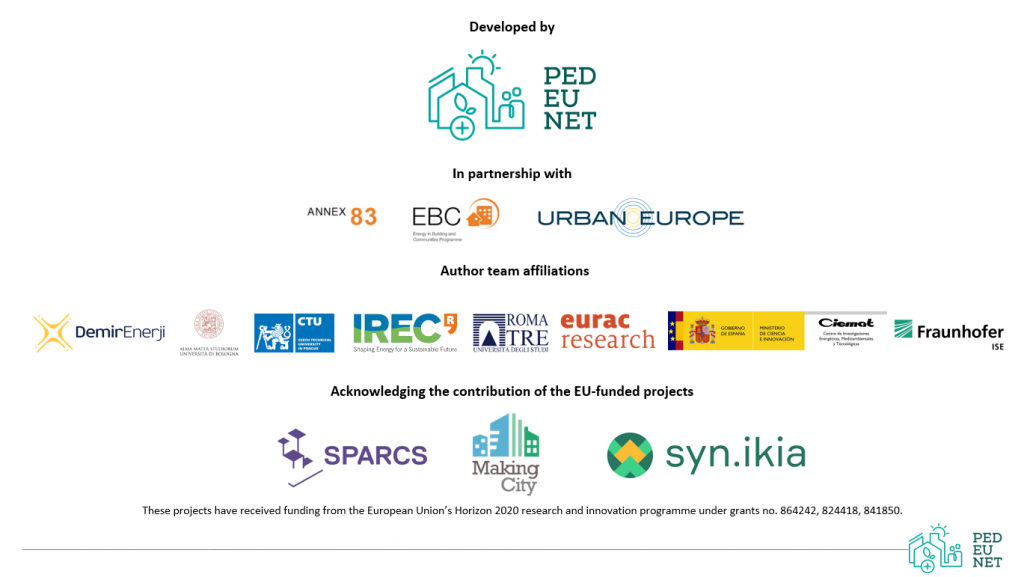
Authors (framework concept)
Beril Alpagut (Demir Energy); Giulia Turci (University of Bologna); Michal Kuzmic (Czech Technical University in Prague); Paolo Civiero (Università Roma Tre); Serena Pagliulia (University of Bologna); Oscar Seco (CIEMAT); Silvia Soutullo (CIEMAT); Daniele Vettorato (EURAC Research, IEA Annex 83); Bailador Ferreras M. Almudena (CIEMAT); Vicky Albert-Seifried (FHG ISE)
Contributors (to the content)
Laura Aelenei (LNEG), Nienke Maas (TNO), Savis Gohari (OsloMet), Andras Reith (ABUD), Ghazal Etminan (AIT), Maria-Beatrice Andreucci (Universita Sapienza), Francesco Reda (VTT, IEA Annex 83), Mari Hukkalainen (VTT), Judith-Borsboom (Locality), Gilda Massa (ENEA), Jelena Ziemele (University of Latvia), Nikola Pokorny (CVUT), Sergio Diaz de Garayo Balsategui (CENER, IEA Annex 83), Matthias Haaze (ZHAW, IEA Annex 83), Christoph Gollner (FFG, JPI UE), Silvia Bossi (ENEA, JPI UE), Christian Winzer (Zurich University of Applied Science), George Martinopoulos (Centre for Research and Technology Hellas), Maria Nuria Sánchez (CIEMAT), Angelina Tomova (Energy Agency of Plovdiv)
Implemented by
Boutik.pt: Filipe Martins, Jamal Khan
Marek Suchánek (Czech Technical University in Prague)
